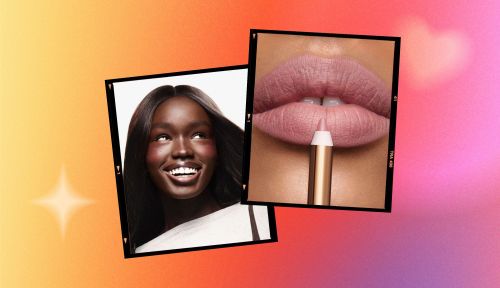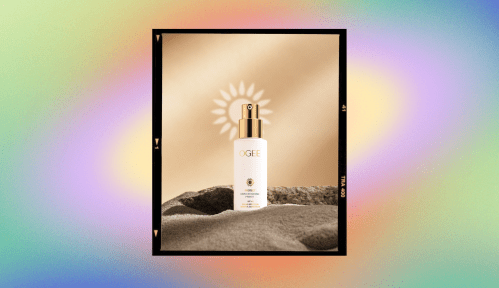Our editors independently select these products. Making a purchase through our links may earn Well+Good a commission
‘I’m a Dermatologist, and These Are the ‘Big 3′ Ingredients I Always Recommend for Treating Eczema’
When it comes to treating dry, itchy skin, you want a triple-threat approach. These are the three eczema ingredients a derm swears by.

Have you ever washed your hands only to notice that your skin looks notably inflamed? Or perhaps when it gets cold out, you find that the skin on your hands, elbows, and other parts of your body becomes drier and drier. In either event, eczema could be to blame.
“Eczema shows up on the skin as red itchy inflamed rashes, and it is important to keep your skin barrier strong to prevent and treat eczema flares,” says board-certified dermatologist Joyce Park, MD, founder of virtual dermatology practice Skin Refinery. “You can keep your skin healthy and strong by regularly moisturizing, using science-backed ingredients to hydrate and protect the skin, and by stopping the itch-scratch cycle.”
In other words, when you feel the urge to itch, don’t. “The more you scratch, unfortunately, the itchier that patch of skin gets,” warns Dr. Park. “And the more you scratch, the higher the risk of causing trauma to the skin which can then get infected.”
While we can’t exactly control your scratching habits (that’s up to you, friend), we can help ensure that you know which ingredients will keep itching and discomfort to a minimum. More on the best skin-soothing actives for eczema, below.
1. Ceramides
Our skin is a barrier of defense against the outside world and all the allergens and bacteria that swarm around it. When that barrier becomes cracked and compromised — which is the case with eczema — allergens can more easily enter the system, causing irritation and inflammation (ie: eczema flares). According to Tiffany Jow Libby, MD, a board-certified dermatologist and Mohs surgeon at Brown Dermatology and Bio-Oil partner, one of the best ways to create a stronger skin barrier is to stock your skin-care routine with ceramides. “Ceramides are naturally-occurring lipids found in our skin that help our skin cells in the topmost layer of our skin, the stratum corneum, to seal in moisture,” she says, noting that one of her go-to ceramide-rich products is the SkinCeuticals Triple Lipid Restore ($136).
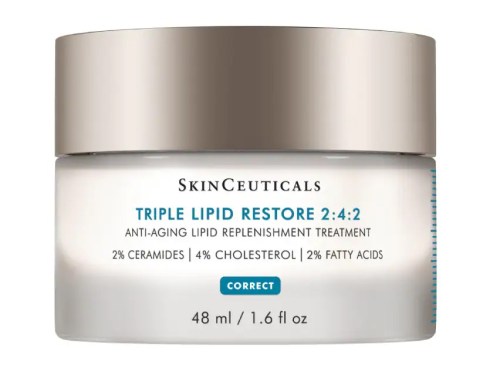
SkinCeuticals Triple Lipid Restore — $136.00
2. Humectants
Humectants—aka ingredients that attract water—are another key defense against eczema flares. “Hyaluronic acid is a humectant that helps absorb water and hydrate the skin,” says board-certified dermatologist Karan Lal, MD. Fun fact: Hyaluronic acid can hold up to 1,000 times its weight in water, so it’s one of the most hydrating and plumping ingredients out there.
To add it to your eczema relief routine, Dr. Lal suggests the CeraVe Moisturizing Cream ($17). “This product has hyaluronic acid and ceramides, both of which help hydrate and heal the skin,” he says. “It comes in a great jar and is a thick but smooth product.” Other humectants include glycerin, urea, and honey.
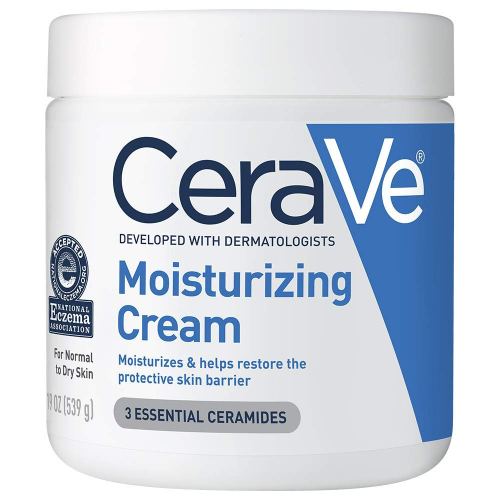
Cerave Moisturizing Cream — $17.00
Craving another product recommendation? Dr. Park says that the No7 Menopause Skincare Instant Cooling Mist ($12) helps soothe and hydrate skin with its cooling combination of rosewater and glycerin.
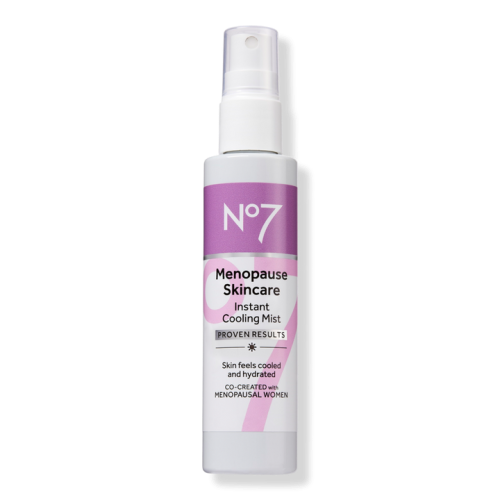
No7 Menopause Skincare Instant Cooling Mist — $12.00
3. Emollients
Emollients are known to soothe and smooth skin. To use them to relieve eczema, Dr. Libby recommends looking for products formulated with sunflower oil. “Sunflower oil is an anti-inflammatory emollient that is rich in fatty acids like oleic and linoleic acids, and vitamin E, making it a common ingredient in moisturizers,” she says, noting that it’s also non-comedogenic, so it won’t clog pores. Other plant oils that act as emollients include marula, jojoba, and argan oil. With this in mind, the Drunk Elephant Wonderwild Miracle Butter ($38) is a fabulous solution for treating eczema. (Just remember, a little goes a long way—you only need about a pea-sized amount to cover your entire face, and it can be used on its own or over top of other skincare products in a slugging technique.)
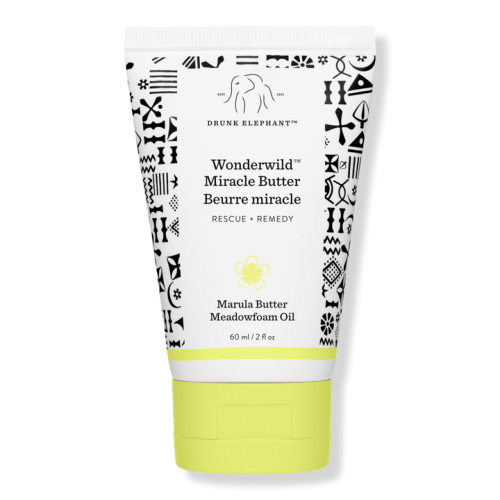
Drunk Elephant Wonderwild Miracle Butter — $28.00
Another emollient Dr. Libby recommends? Petrolatum. “Petrolatum is a thick emollient that helps prevent water loss from your skin, known as transepidermal water loss (TEWL),” she says, noting that it can be found in Cetaphil’s Healing Ointment ($17). “When too much water is lost from the skin, the skin barrier can become disrupted which may trigger dry, itchy skin and eczema,” she adds.
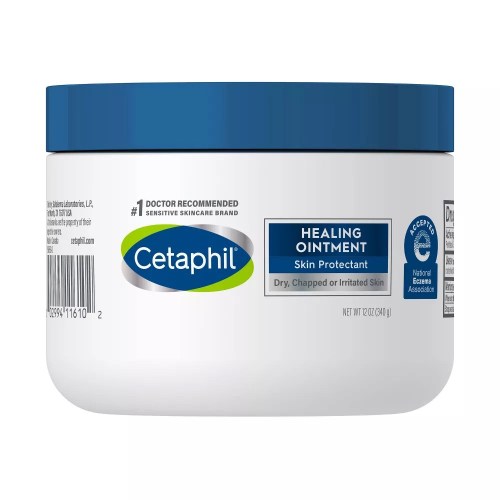
Cetaphil Healing Ointment — $20.00
While petrolatum and plant oils tend to be some of the most popular emollients in skin care, Dr. Libby is quick to remind us that colloidal oatmeal is also an emollient and nothing short of a godsend for folks with eczema. “Colloidal oatmeal is a natural ingredient derived from ground oat that functions as a skin protectant, is anti-inflammatory, and helps smooth, soothe, and moisturize skin,” she says, recommending Mustela’s Stelatopia Intense Eczema Relief Cream ($21).
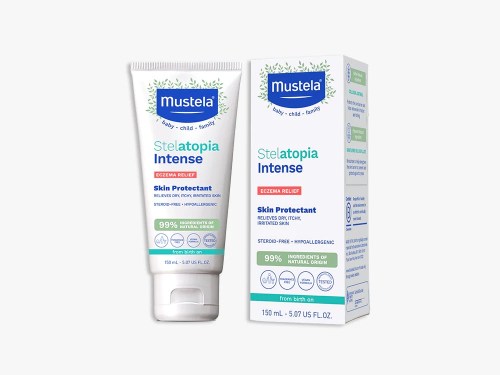
Mustela Stealtopia Intense Eczema Relief Cream — $21.00
One more thing to keep in mind…
While each of these ingredients packs a powerful punch against eczema, Dr. Lal says that the best approach is one that’s multi-faceted. “When people have eczema their skin is void of a normal amount of ceramides, hyaluronic acid, and other lipids,” he explains. “There is also inflammation that needs to be accounted for. It is for this reason I like to use products that have ceramides, hyaluronic acid, antioxidants, and fats/lipids.” His go-to? La Roche-Posay Lipikar AP+M Triple Repair Body Moisturizer for Dry Skin ($20). “This product has ceramides, shea butter, and thermal spring water (which is full of antioxidants),” he says. “This is one of the mainstays in my clinic. It is affordable, non-greasy, and safe for all ages.”
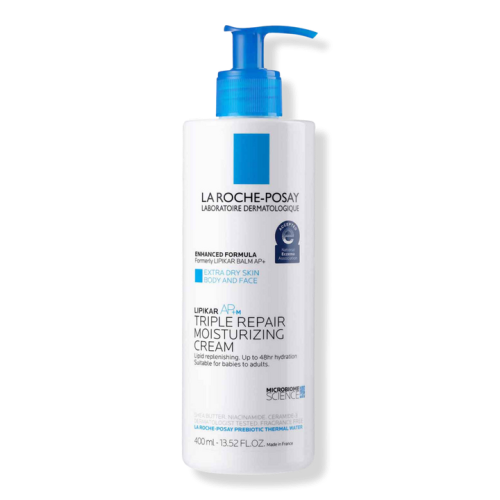
La Roche-Posay Lipikar AP+M Triple Repair Body Moisturizer for Dry Skin — $20.00
Sign up for the Well+Good SHOP Newsletter
Get exclusive deals on wellness, beauty, fitness, and food products that have been hand-picked by our editors.
Got it, you've been added to our email list.



